
Main Page
Film Festivals
Alphabetical Menu
Chronological Menu
|
(March 26th - April 6th, 2008) Click here for more information about the Film Programs at the festival Frozen River - *Opening Night Film* Directed by Courtney Hunt. 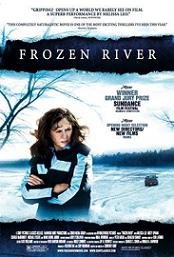 In a small New York town near the Quebec border, Ray (Melissa Leo), a mother of two who can’t afford her trailer home anymore, meets Lila (Misty Upham), a Native American from a local Mohawk reservation. Lila convinces her to smuggle illegal immigrants in the back of her trunk from across the frozen St.Lawrence River as a means to help her make enough money to save Ray’s trailer home. Meanwhile, Ray’s teenage son, T.J. (Charlie McDermott) stays at home with his younger brother, Ricky (James Reilly). Ray, initially, doesn’t quite get along with Lila and just wants her husband’s car back that she had stolen. It’s interesting to watch how the two of them become unlikely friends with one another. Writer/director Courtney Hunt gradually builds up the plot tension as Ray becomes involved full throttle in Lila’s smuggling scheme and gets more desperate for money. Hunt knows that in order to keep you immersed in the story, she needs to create believable characters. Ray might not be particularly likable based on her actions, but at least there’s more to her than meets the eye. Moreover, Melissa Leo sinks into the role of Ray with utter conviction and delivers a truly raw performance. The other strong character in the film is the snowy location itself which adds to the somewhat foreboding atmosphere much like in Fargo. Despite a third act that ties the plot a little too neatly with all of its contrivances, Frozen River still manages to be a mostly compelling drama. Number of times I checked my watch: 2. Released by Sony Pictures Classics. Opens August 1st, 2008 at the Angelika Film Center and Lincoln Plaza Cinemas. Ballast - Directed by Lance Hammer. 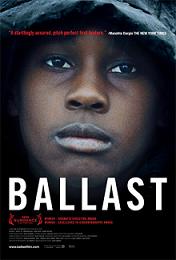 12-year-old James (JimMyron Ross) owes thugs $100, so he arrives at the home of Lawrence (Micheal J. Smith, Sr) and threatens him at gunpoint to fork over money. Lawrence had recently injured himself trying to commit suicide after discovering that his twin brother, Darius, died of a fatal drug overdose. Meanwhile, Marlee (Tarra Riggs), James’ mother, gets involved in all the altercations. The plot sounds like it could be compelling given its summary, but so many scenes lack dramatic tension and simply feel bland. Writer/director Lance Hammer expects the audience to infer the relationships between each character and their significance to the thin narrative. There’s clearly much more going on beneath the surface, but Hammer’s weak, unimaginative screenplay doesn’t allow you to care about what happens to any of the characters, which makes it difficult to become absorbed by what you’re watching. The pace moves at such a sluggish rate that it’s often sleep-inducing. On a positive note, Hammer does a decent job of using bleak, muted colors through cinematography that compliments the film’s overall melancholy tone. With a more imaginative script and stronger attention to character development, Ballast could have been much more engaging and poignant rather than often tedious and dull. Number of times I checked my watch: 8. Released by Alluvial Film Company. Opens October 1st, 2008 at the Film Forum Jellyfish - Directed by Shira Geffen and Etgar Keret.  In Hebrew with subtitles. Batya (Sarah Adler) tries to figure out the origins of a mysterious little girl (Nikol Leidman) while an old woman, Malka (Zaharira Harifai), reconnects with her daughter (Ilanit Ben-Yaakov), a thespian, and interacts with her Filipino caretaker, Joy (Ma-nenita De Latorre). In another subplot, Keren (Noa Knoller) and Michael (Gera Sandler), newlyweds, spend their honeymoon in a small hotel overlooking the ocean where Michael flirts with a writer (Bruria Albeck) staying at the hotel. All these parallel subplots have a few tender, poignant and lyrical moments, but, for the most part they simply meander without enough focus. Screenwriter Shira Geffen includes plenty of characters that could have been more interesting with insight into the lives of the characters instead of pretentiously trying to add some symbolism and to connect everything together indirectly. The cinematography looks great with picturesque scenery—although, how difficult is it really to make the Mediterranean look beautiful? With its very brief running time of 78 minutes, Jellyfish is harmless, underwhelming and ultimately forgettable. Number of times I checked my watch: 6. Entertainment Value: Low. Spiritual Value: Low. Released by Zeitgeist Films. Opens April 4th, 2008 at the Angelika Film Center and Lincoln Plaza Cinemas. Moving Midway - Directed by Godfrey Cheshire. 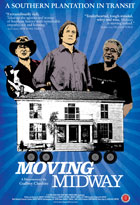 This mildly fascinating documentary explores the history of the American plantation system while showing the process of moving the Midway plantation of director/film reviewer Godfrey Cheshire’s ancestors to another location within a suburban section of Raleigh, North Carolina. The plantation had been at the same plot of land since 1848. Cheshire clearly has done a lot of research about plantations and it shows through his use of archival footage and current interviews with such experts as Robert Hinton, a NYU professor of African studies. Hinton has proof that one of Cheshire’s white ancestors bore children with a slave. That sounds like pretty revelatory news, so the fascinated Hinton travels to Raleigh to meet Cheshire’s many relatives and to witness the moving of the Midway plantation. Admittedly, the film loses its focus and momentum throughout its meandering second half as Cheshire makes interesting points about the evolution of plantation, but fails to explore them fully enough. What about the important issue of urbanization? That opens a big can of worms that needs more analysis. The footage showing the actual moving of the house makes the pace turn sluggish and could have easily been trimmed down to a few minutes rather than what seems like 10 minutes. Typically, a well-made documentary should not only present intriguing information, yet it also assesses and synthesizes it into some form an interesting conclusion, which doesn’t really happen here. At a running time of 98 minutes, Moving Midway remains somewhat engaging and has many moments of intrigue, but it doesn’t present them with enough focus or analysis to be truly insightful or provocative. Number of times I checked my watch: 4. Released by First Run Features. Opens September 12th, 2008 at the IFC Center and Lincoln Plaza Cinemas. Munyurangabo 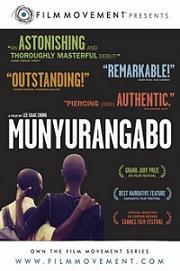  Trouble the Water - Directed by Tia Lessin and Carl Deal. 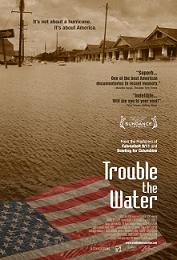 Water Lilies - Directed by Céline Sciamma.  In French with subtitles. Marie (Pauline Acquart), a shy 15-year-old, befriends Floriane (Adele Haenel), a promiscuous and popular girl on the school swim team. Their new friendship threatens the relationship between Marie and her best friend, Anne (Louise Blachère), an overweight, unpopular girl. Both Anne and Floriane pine for François (Warren Jacquin), a hunky male swimmer. What initially sounds like a typically contrived teen drama actually turns out to be surprisingly tender and absorbing coming-of-age story. Even though Floriane might seem like a bad influence on Marie, there’s much more to her than meets the eye. Each young actress gets a chance to shine and give a very convincing performance. First-time writer/director Céline Sciamma wisely allows the plot to progress organically and doesn’t rely on sex or violence as a means to entertain—like in the movie Kids. The sensitive screenplay allows for the character of Marie to change believable without any contrivances or eye-rolling scenes. Water Lilies ultimately succeeds as a poignant coming-of-age drama because it’s driven by strongly-developed characters that you care about as complex individuals rather than caricatures. Number of times I checked my watch: 0. Entertainment Value: High. Spiritual Value: High. Released by Koch Lorber Films. Opens at the Landmark Sunshine Cinema. /center> XXY - Directed by Lucía Puenzo.  In Spanish with subtitles. Alex (Ines Efron), a 15-year-old hermaphrodite, struggles with a sexual identity crisis when she enters a sexual relationship with 16-year-old Alvaro (Martín Piroyansky). Alvaro’s father (German Palacios) happens to be a plastic surgeon who can help Alex become 100% female with corrective surgery. Ricardo Darin plays Alex’s supportive and loving father. What follows is a surprisingly tender and endearing drama that’s almost as powerful as Boys Don’t Cry, which treads the same water. Ines Efron delivers a raw performance that demands your attention. She masters a wide range of emotions from frustration to lust to just plain confusion. Her scenes with Alvaro feel particularly intense and moving, especially given how Alvaro questions his own sexuality as well. Writer/director Lucía Puenzo includes lush, exquisite cinematography along with lighting and moves the pace slowly which enhances the overall sad tone of the film. A few scenes drag a bit in the second act, but much of the plot is unpredictable and surprising. Released by Film Movement. Number of times I checked my watch: 2. Opens May 2nd, 2008 at the Cinema Village. Main Page Film Festivals Alphabetical Menu Chronological Menu ______________________________________________________ |
The NYC Movie Guru
themovieguru101@yahoo.com
Privacy Policy